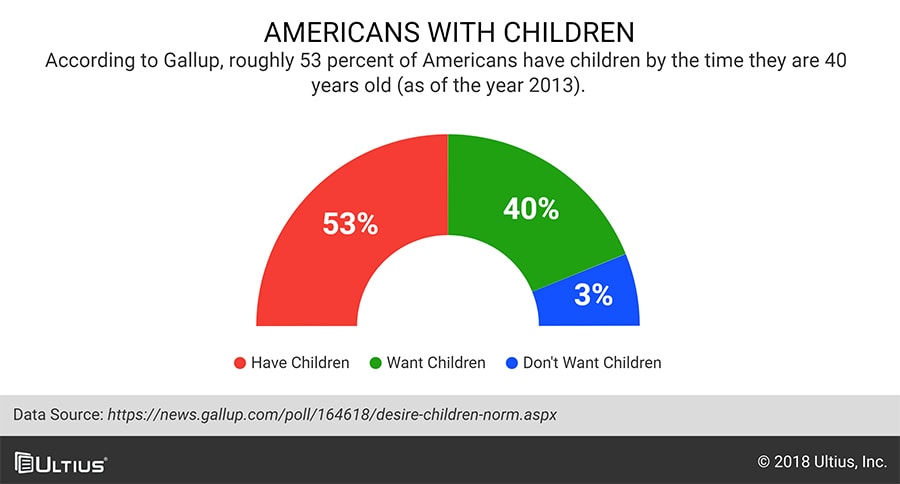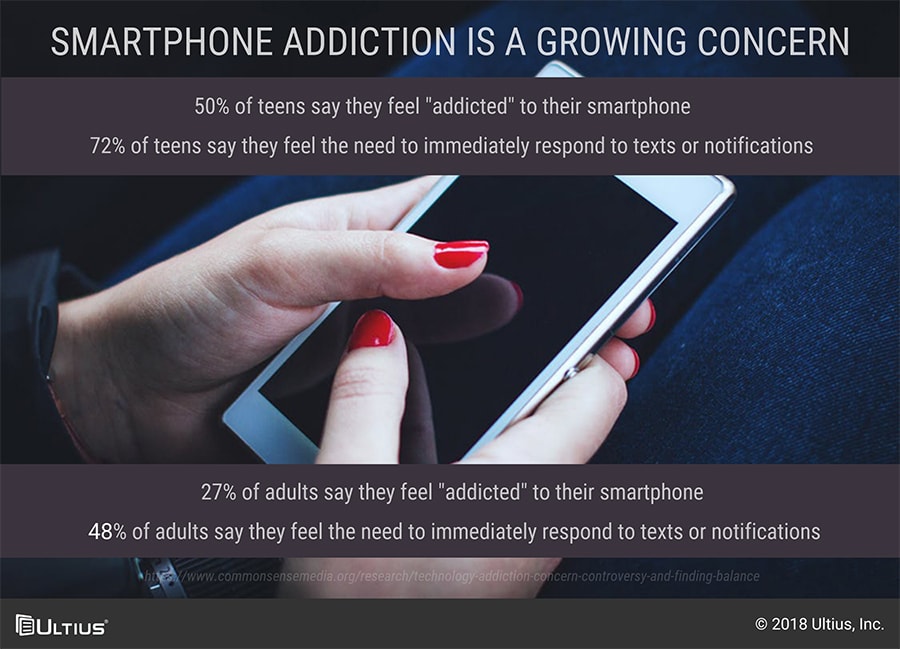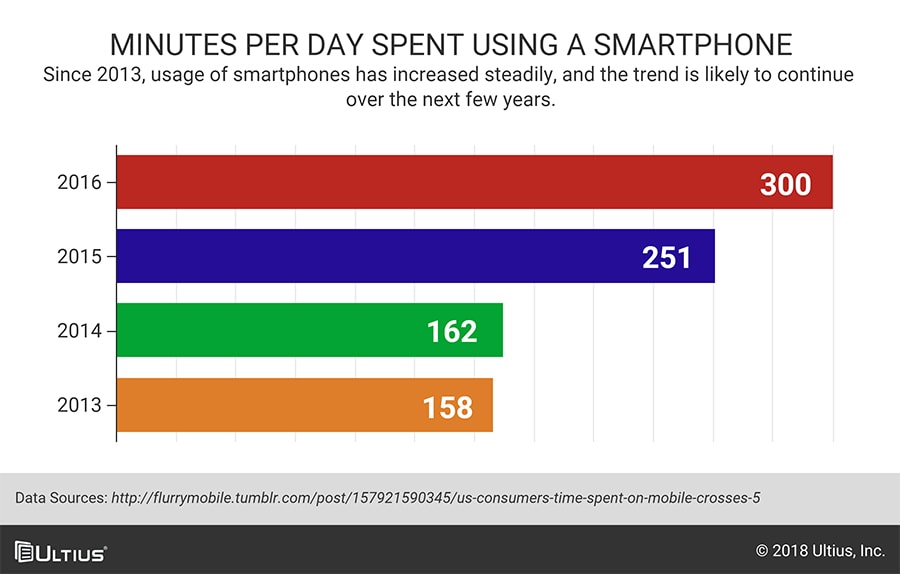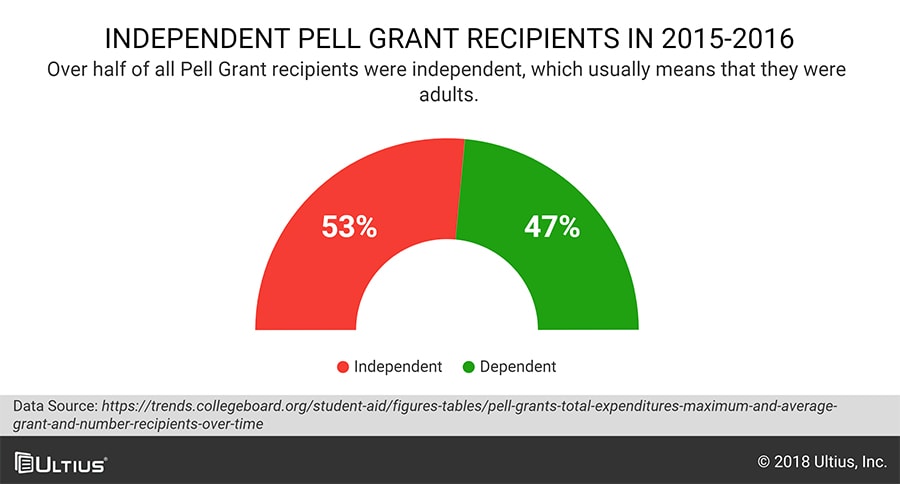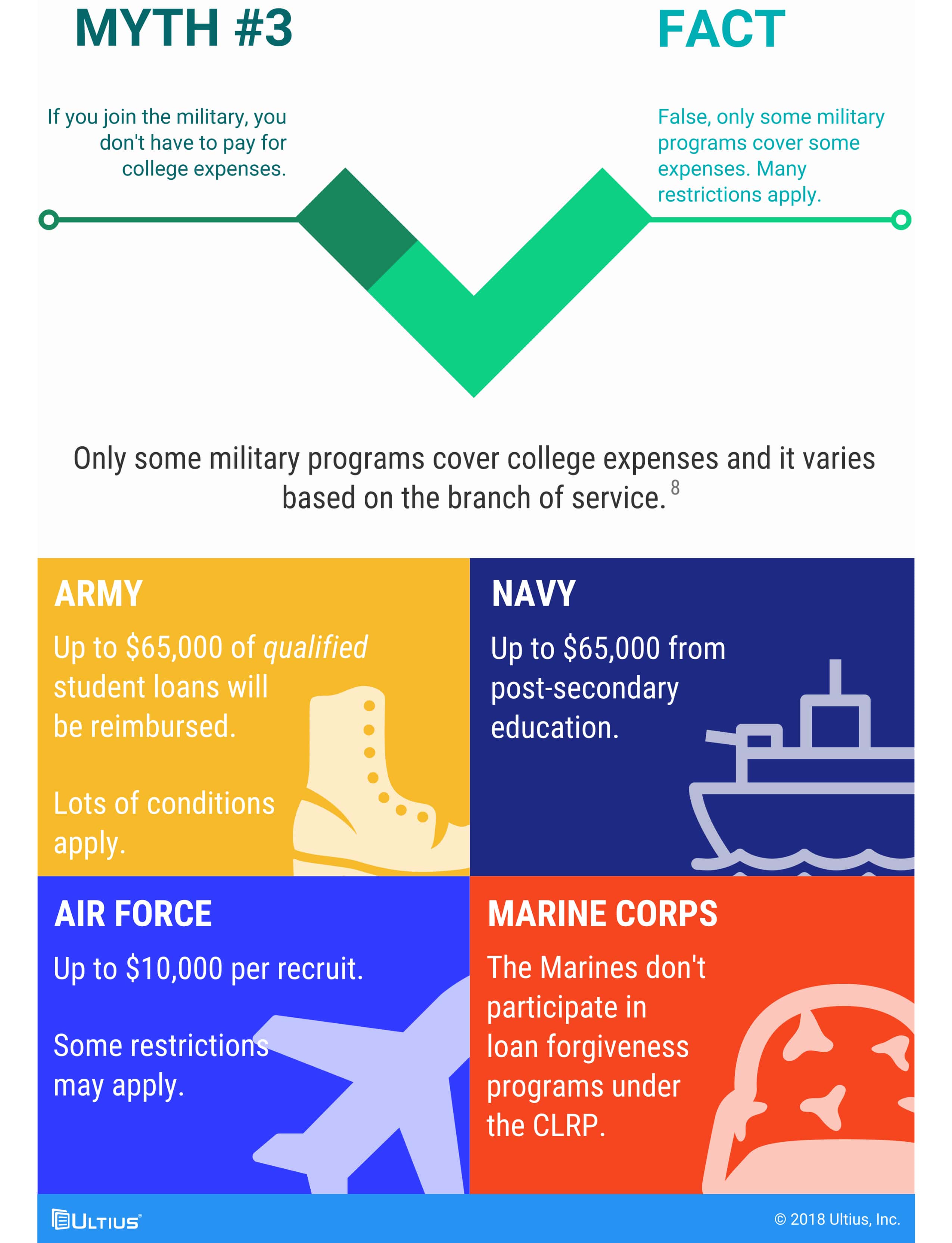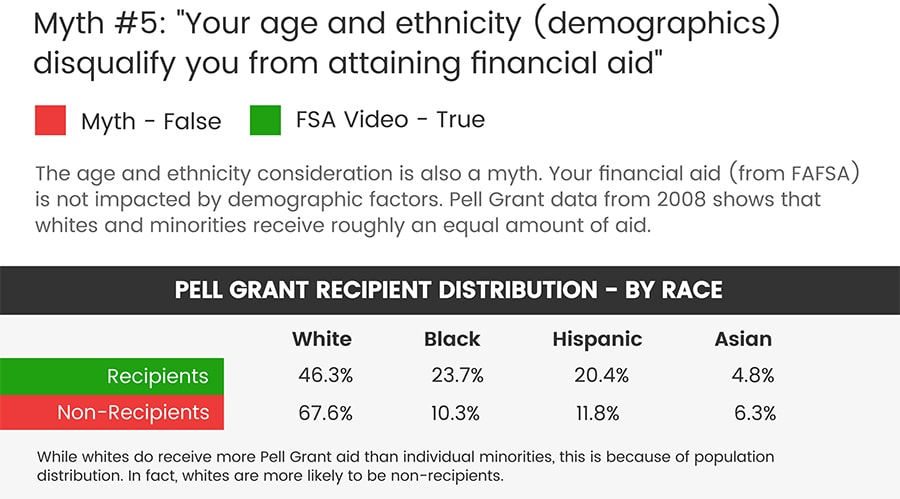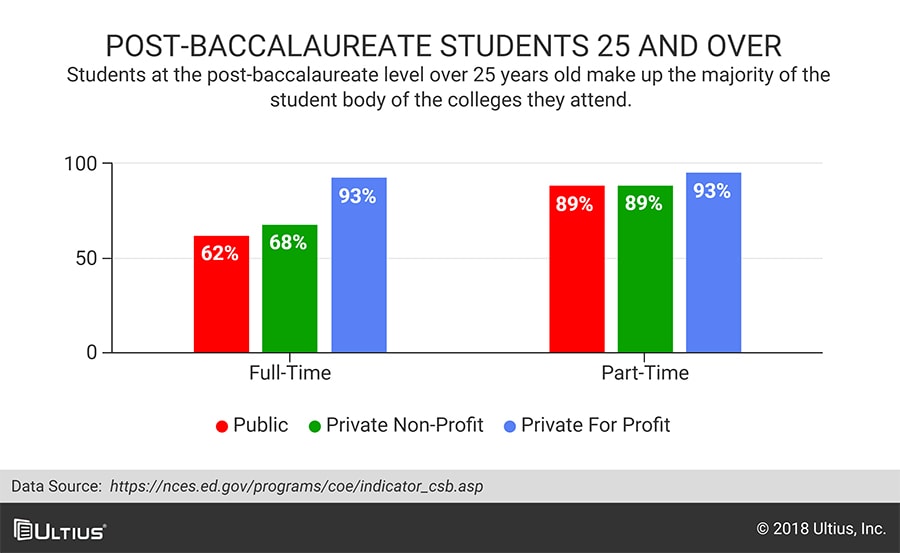Ultius Blog
Scholarship Opportunities and Financing for Adults Going Back to School
This post is about financing options for adults going back to school.
In short, working adults looking for school-related financing options should consider scholarships, military redemption programs, employer contributions, and student loans.
Higher education is one of the primary mechanisms through which people can to advance their career prospects and opportunities—and school is no longer just for people in their late teens or early 20s. In fact, more and more adults are opting to go back to school. In fact, the number of people in college who are 35 years of age or older increased by almost 144 percent the years 1980 and 2010.
However, there may be unique challenges experienced by an adult who wants to go back to school: these challenges can involve both the financing of further education and the balancing of existing responsibilities. The purpose of the present article provided by Ultius is to develop an in-depth consideration of these challenges. The article will include the following sections:
- Holistic challenges for adults going back to school
- The importance and benefits of going back to school
- Opportunities for funding
- Data on funding sources for adult students
- Scholarships targeted at adults
- Additional information
Holistic challenges for adults going back to school
One of the main that may emerge when you decide to go back to school as an adult is that you may have many other responsibilities to manage by that point in your life. This is generally not a concern for an 18-year-old freshman, for example, who is unlikely to have a family to take care of or other responsibilities that would interfere with his commitment to his studies. A previous article about going back to school in your 30s, addressed some of these challenges and discussed points such as:
- Achieving a balance between education, work, and family
- Discussing the changes with one's family and social circles
- Staying organized and practicing effective time management
- Maintaining healthy habits even when busy
- Considering online course options
- Finding supportive resources to help maintain balance
- Balancing education with other responsibilities
According to a poll conducted by Gallup, about 53 percent of Americans have children by the time they are 40 years old (as of the year 2013). This suggests that many adults who decide to return to school may be in a situation where they have families and children, and where going back to school may put additional pressure on the family system. This is why it can be crucial for adults to make their decision to return to school in collaboration with their families, such that family members will be aware of what to expect and how the distribution of responsibilities within the family may shift as a result of the decision.
Likewise, 59.2 percent of all Americans over the age of 16 work under conditions of full-time employment, and that number is surely higher as people get further into their adult lives. (For example, one imagines that the number of people in their 30s who have full-time employment is greater than the number of people in their 20s.) So, it is likely that an adult who is looking to go back to school may need to balance education not only with family but also with work.
If an adult going back to school has full time work now, then it is possible that s/he would need to go part-time if possible while in school. This highlights the importance of keeping managers and coordinators at work in the loop about one's educational responsibilities.
| Employment status | Percentage |
| Employed | 59.2% |
| Unemployed | 3.2% |
| Seeking employment | 2.3% |
| No desire to work | 35.2% |
Strategies for maintaining balance
There are strategies that the adult who is thinking about returning to school can use in order to maintain and achieve balance. One of these strategies consists of compartmentalization, which can help you ensure that you are focused on specific areas of your life at the specific times that you have designated for them. This means, for example, that your family should know not to disturb you when you are studying, and that you likewise don't get distracted by school-related things during time that you have designated to be spent with your family. This would be one good way to ensure that your attention is going where you what it to go, and in the right portions.
| Category | Hours per day |
| Work | 4 |
| School | 5 |
| Family | 8 |
| Sleep | 7 |
In order to optimize the time you spend on any given part of your life, you should seek to minimize distractions whenever possible. For example, when you are studying, you should find a quiet place. If possible (e.g. if you don't have small children), then you may want to let family and friends know that they will not be able to contact you during your study hours, due to the fact that your phone will be turned off.
People were fine without being in 24/7 contact before the rise of smartphones and social media, and they will be fine now. Research indicates that many people today are addicted to their smartphones: according to a study conducted by Flurry Analytics, the average American spends 5 hours a day using a smartphone.
If you have a hard time being away from your smartphone for sustained periods of time, then you may have nomophobia, or a smartphone addiction. This can have a strong negative effect on your concentration and hurt the quality of the time you spend on various aspects of your life, including school and family.
An important part of using compartmentalization is to ensure that you are fully focused on the part of your life that you are spending time on at a given moment, and it is clear that from this standpoint, nomophobia would be just plain debilitating. In order to get rid of distractions, then, this would be a good place to start.
Financial challenges of going to school
One of the main challenges confronting anyone going to college, including adults, consists of the question of how to finance your education. The price tag of education is clearly a significant problem for many people. As Sophie Quinton has written for Pew Trusts:
"Paying for college has become a financial strain on middle-class families across the country, and a source of anxiety for recent graduates saddled with student debt."
If an adult has a family and work, then going back to school may mean that there will be less money to spend on the family, and it may also mean that less money coming in, as a result of cutting back on the number of hours spent at work. The question of how to finance education thus becomes a serious one. Do you have savings, or do you intend to take out a loan? Or perhaps you will be able to find scholarships, or support through your work itself. There are a lot of options here, which will be discussed further below in the appropriate section of the present article.
What is clear, though, is that funding for the adult student going back to school will likely involve a different set of options than funding for younger students. For example, the adult student would be less likely to depend on one's parents for funding; and likewise, s/he will almost certainly have further responsibilities to juggle than would a younger student, insofar as it is less likely that the younger student would have a family or be responsible for full financial independence. In short, there are unique considerations that must be taken into account. Despite these difficulties, though, there are still strong reasons why the adult student should in fact strongly consider going back to school.
The importance and benefits of going back to school
One of the most compelling reasons that an adult may have for going back to school is, of course, money. There is no denying the fact that higher educational degrees are strongly correlated with higher median pay.
This has been made clear, for example, through data presented by Pew Research Center: the median monthly income of a person with a professional/doctoral degree was found to be almost $2,000 higher than the same metric for a person with only a bachelor's degree.
| Degree type | Difference in income versus no degree |
| Bachelor's degree | $3,836 |
| Master's degree | $4,772 |
| Professional/Doctoral degree | $5,799 |
It would thus be reasonable to believe that going back to school tends to have a positive effect on one's income, and this financial incentive is a main reason why adults consider going back to school. Of course, this may not always be the case, and you should always evaluate your specific professional situation in order to determine whether going back to school would translate into improved professional opportunities for you. In general, though, the numbers say that it is true that the higher one's degree, the higher one's median income. This is surely worth keeping in mind when making decisions about whether to go back to school.
It is also worth noting that many adults who decide to go to school may not have previously obtained a college degree in the first place. In the modern economy today, this can be a serious liability that inhibits one's career opportunities. According to Pew Research Center, young Americans who had at least a bachelor's degree earned an average of $17,500 more per year compared to people in the same age group who had only a high school degree.
| Amount of college | Average median income |
| College degree | $45,500 |
| Some college (no degree) | $30,000 |
| High School diploma, GED | $28,000 |
One implication here is that if you are an adult who went to college but didn't finish your degree, then it may well be worth your while to go back and finish what you started. This is because (as per the data above) while people with some college tend to make only slightly more than high school graduates, people with a completed degree tend to make over 1.6 times as much as high school graduates. This is substantial, and depending on how close you are to having a completed degree, it can make going back to school an easy wager to accept.
Adults' reasons for going back to school
Different adults may have different reasons for going back to school. Cornerstone University has delineated seven reasons why adults may make this decision:
- The need to change careers
- Launching a second career
- Improved income
- Enhance an existing career
- Finish what they started
- Additional skills required
- Flexibility of options
In general, these reasons can be summarized into three main categories.
Firstly, a higher level of education is correlated with enhanced income, and for a lot of adults, this is quite reason enough to go back to school.
Secondly, in the modern economy, it is possible that a previous career may become obsolete or dysfunctional through no fault of one's own, and it is also possible that keeping up with one's current career will involve perpetually gaining new knowledge and skills in one's field.
And thirdly, there are new opportunities, such as online learning, that make it easier for adults to go back to school if they wish to do so.
The financial considerations would seem to be far away the most important ones for adults who are considering going back to school. According to a study commissioned by Champlain College Online, 70 percent of adults believed it was important to have a bachelor's degree in order to succeed in the modern economy; 73 percent of adults indicated that their main reason for wanting to go back to school was to improve their earnings; and 75 percent of adults reported that concerns about student loan debt was the primary barrier against the decision to go back to school.
| Reason | Percentage |
| Feel a Bachelor's degree is important | 70% |
| Want to increase income earned | 73% |
| Student loan debt is a barrier | 75% |
Online learning
Online learning may be an excellent opportunity for adults who are seeking to go back to school. This is because the nature of online classes is that there is a great deal of flexibility regarding when the student spends his/her time on the class. In general, there are no scheduled class sessions to attend, but rather just deadlines that must be met for assignments. This can give the adult student the opportunity to schedule classwork in the most convenient places in his/her schedule, as opposed to having to build the entire schedule around class time, as would be the case with traditional classes.
More and more students are taking advantage of the opportunity of online classes over time. For example, Babson Survey Research Group has indicated that between the years 2015 and 2016, online enrollment numbers rose by 5 percent. Online classes are thus gaining popularity, and they are a legitimate educational option that should be considered by adults who are concerned that going back to school would put too much pressure on their schedules.
Many colleges and universities offer online learning opportunities. In fact, according to Pew Research Center, 77 percent of all colleges offer such courses, and the numbers are quite high irrespective of what specific type of college is under consideration (although 4-year private colleges are less likely to offer such courses than other kinds of colleges).
| Sector | Percentage offering online courses |
| 4-year private | 60% |
| 4-year public | 89% |
| 2-year private/public | 91% |
| For profit | 71% |
If you are concerned about how you are going to balance family, work, and education, then utilizing online courses could provide you with a great method for achieving the optimal balance.
According to data provided by Champlain College Online, 76 percent of adults who have thought about going back to school have considered online learning to be a very good or even excellent option for adult learners, and a substantial number reported a belief that online learning would be better at meeting the needs of the adult student than face-to-face learning. So, this is clearly an option that is worth checking out for any adult student.
Stuck with writing?
Ultius can help
Other benefits of going back to school
Aside from financial benefits per se, it is important to consider the ways in which going back to school and achieving a further degree could improve one's general prestige and positioning within the workplace. For example, within the nursing profession, there has been a recent push, on the basis of a key recommendation made by the Institute of Medicine, to have 80 percent of nurses credentialed at the bachelor's level by the year 2020. This means that if you are a nurse and don't have a bachelor's degree by then, you can expect to be a minority; and you are currently a nurse who does have a bachelor's degree, then you may need a master's degree in order to stand out in the near future.
Likewise, there are many professions where although having a more advanced degree may not present an immediate financial benefit, it will in fact set you up to be considered for promotions or other opportunities whenever they may happen to emerge within your organization. In other words, even if there is no opportunity at the moment, there is likely to be opportunity at some point within the near future, and if you have a more advanced degree, then you will likely be first up for consideration for such opportunity. In short, going back to school could improve your general professional prestige and help you stay prepared for when opportunity does in fact show up.
Opportunities for funding
If you are an adult who wants to go back to school, then there are several opportunities for funding that you can check out in order help financially facilitate your path.
These opportunities include:
- Scholarships
- Mlitary redemption
- Family
- Jobs
- Loans
1. Scholarships that can help adults pay for college
Scholarships generally come in two forms. The first consists of need-based scholarships, whereas the second consists of merit-based scholarships. Ultius, for example, provides the need-based SEED scholarship, which is worth $2,000 and can be used to pay tuition or get school supplies, such as books. The SEED scholarship is available to students who also qualify for the Pell Grant, which is the federal government's major need-based scholarship.
According to the College Board, 7.1 million students received the Pell Grant in the 2016-17 school year, and in the 2015-2016 school year, 53 percent of the recipients were independent. "Independent" in this context means not affiliated with family for financial purposes, which likely includes a large number of adults. The only requirements for the Pell Grant are that you have a high school diploma (or GED) and are pursuing your first bachelor's degree. There are no other criteria, and there is no age restriction.
Other scholarships
There are various other scholarships, both need-based and merit-based, that are have specific criteria based on demographic factors, program of enrollment, and more. The best thing to do would be to decide what program you would like to pursue, and then seek out scholarships that are congruent with that program and your own demographic factors. There are several scholarships that are specifically geared toward encouraging adults to go back to school.
For example, here are a few scholarships for adult students that can be found on a list compiled by Scholarships.com
| Name | Amount | Criteria |
| College JumpStart Scholarship | $1,000 | Be a high school student or an adult |
| Adult Students in Scholastic Transition | $2,000 | Define a clear career path, live around Columbus, Ohio |
| Senior Adult Scholarship Program | Varies | Be 60 years of age or older, live in Alabama; usable at two-year public colleges |
As you can probably see, different scholarships can be for different amounts, and they may have a broad range of different criteria for applicants (some very general, and others very specific). By looking into all available options, you may be able to patch together various scholarships in order to significantly defray the cost of going back to school.
2. Military redemption programs that can assist with student financial aid
Service in the armed forces is often linked to the military's assistance in paying for college.
For example, the Post-9/11 GI Bill is an update of the sort of legislation that was passed after World War II, and it is specifically intended to help veterans return to civilian life by paying for their college education. According to Pam Wilson of the USAA:
"This benefit is offered to members of the military who have served at least 90 days on active duty since Sept. 11, 2001. Depending on length of service, the bill pays 40% to 100% of tuition and fees at an in-state public college or university, or up to $17,500 at a private or foreign school."
There is also the Montgomery GI Bill, which requires members of the military to pay $100/month into a fund for a year, at which point members can draw about $1,500/month in order to help pay for a full-time college education. The military itself also directly offers some tuition assistance programs, which can amount to several thousands of dollars a year.
So, if you an adult who has served in the military, this could be a major opportunity.
3. Borrowing from family to help pay for college
Family may be another key source of funding for the adult student who is going back to college. This may not be an option for many Americans who do not have savings or whose relatives also do not have savings. However, it is still true that the savings of parents and contributions from relatives and friends constitute one of the significant sources of funding for many students.
According to a study conducted by Sallie Mae, 29 percent of all college funding in the 2015-16 school year was funded by parent income and savings, and another 5 percent was funded by contributions from relatives and friends
| Parent income and savings | 29% |
| Contributions from relatives and friends | 5% |
| Other | 66% |
These numbers, though, include all college students: it thus includes 18-year-old students whose parents are paying for their college education, and does not necessarily refer to (say) 40-year-old students who are drawing money from their elderly and retired parents.
The general point that can be made here, though, is that when you are planning to go to college as an adult, you should consider your family's financial resources, along with potential resources available through your own informal social networks. Unless you come from wealth, this may not be enough to pay for the entirety of your college education, but it can at the very least make a decent contribution.
4. Job and employment contributions to continuing education
Another potential source of funding for college consists of jobs: that is, your employer might have programs that can help you pay for college. This may sound too good to be true, but in fact, Troy Onink has written the following in Forbes magazine:
"Many employers offer up to $5,250 per year in tuition reimbursement for college courses. Under section 127 of the tax code, the IRS allows your employer to deduct the expense, and the benefit is not taxable to you as an employee."
This provision can serve as a strong incentive for employers to invest in their employees in the form of helping them go to college. This could benefit the employer by improving the credentials and skill sets of the employees, and it could benefit the employees by of course providing them with an opportunity to go back to school when this might have otherwise been an unfeasible proposition.
There are particular professions that may be more likely to provide job-based financial aid for college, so if you work in such professions, then this is an opportunity that may be of especial interest to you. For example, many schools (as in elementary, middle, and high schools) pay their teachers to go to college and get their master's degrees, in part because this reflects quite well on the schools themselves. Likewise, as the nursing profession becomes increasingly professionalized, it is of increasing importance for many healthcare organizations that their nurses are trained at the bachelor's level or higher.
5. Taking out student loans to fund college
Finally, loans are a perennial source of funding for college students of all ages, including adult students who are going back to school. Unlike scholarships and grants that do not need to be repaid, loans do in fact have to be repaid, although there are usually conditions that allow for the deferral of payment until after the student has finished the target college program.
Loans can be risky, though, due to the fact that there is often no guarantee within the modern economy that the student will in fact be able to effectively find a job that enables him/her to repay the debt upon completion of the degree program. Federal student loans are available, and the data, as reported in the New York Times, indicates that many students max out the amount that they are allowed to borrow from the federal government.
These numbers also indicate that at least for younger students, parents are taking on more and more debt in order to help their children pay for college. Whereas the average student debt has leveled off at about $30,000, the average parent debt has continued to rise over time, exceeding $35,000 as of the 2017-18 school year.
So, if you are an adult student considering the option of taking out loans, you would be well-advised to consider what you expect the payoff from your degree to be. When you have a family to take care of, you probably don't have the luxury of going to school just for the sake of personal enrichment or the like. Rather, if you decide to take out loans, then you will want the certainty that this will improve your professional situation in such a way that the loans will be worth it and pay for themselves within a reasonable timeframe.
Concerned about financial aid? Check out these 6 myths about student financial aid.
Data on funding sources for adult students
As has been indicated above, 53 percent of all Pell Grant recipients in the 2015-16 school year were classified as "independent," which often means that they were adults. (It is possible for younger students to be classified as independent for financial purposes, but this is relatively uncommon.) Every adult student who has financial need should thus apply for the Pell Grant. In fact, application is automatic with the filing of FAFSA, which is the federal government's financial aid program for college students.
While several scholarships are available that are specifically targeted at adult students (a list of some of them can be found below), it is not clear to what extent many adult students take advantage of these opportunities: there would appear to exist no clear dataset regarding how adult students in particular fund their college educations. Much of the existing data indicates how students in general fund their educations, but there is a gap in the research regarding funding for adult students.
This is problematic, as the assumption can reasonably be made that adult students would draw on different sources of funding than students in general. For example, whereas many younger students may have their parents pay for their college education, it seems less plausible that adult students, whose parents may be retired, would likewise depend on funds from parents. For example, the assumption could reasonably be made that adult students would feel more obliged to draw on their own resources, whether this means using savings or taking out loans. Again, though, there would not seem to exist any hard data on this subject.
A need for further funding?
The scholarships that are currently available—except for the federal government's Pell Grant and military redemption programs—would not seem to truly address the magnitude of adult students who are seeking to go back to school in these times. In other words, it would seem that adult students are still somewhat treated as an anomaly when it comes to college funding opportunities, whereas the truth is increasingly that adult students are becoming a norm. This is made clear by data provided by the National Center for Education Statistics. This is especially true for degrees beyond the bachelor's degree.
Moreover, research indicates that when all college students at all degree levels and types of institutions are combined, about 47 percent of them are found to be 25 years of age or older. Being an adult student is thus on the verge of becoming the norm rather than the exception.
This raises the legitimate question of to what extent funding options for college education are taking advantage of this new emerging reality. Many of us would still seem to be attached to the paradigm of the typical "college student" as a late teenager who is financially dependent on parents and going to school on a full-time basis. And yet the demographic data indicates that this is becoming less and less the case. In fact, as Stephen Pelletier has written in a report for the American Association of State Colleges and Universities:
"[A]s few as 16 percent of college students fit the so-called traditional mold: 18- to 22-years-old, financially dependent on parents, in college full time, living on campus."
And that was back in the year 2010. There is every reason to believe that the numbers for "traditional" students is even lower by now. It is not clear whether the current state of funding for adults going back to school has taken these serious demographic and financial shifts into account, due to the fact that there appears to not exist any credible dataset regarding the specific funding options actually used by adult students. More research into this subject would thus clearly be in order.
Scholarships targeted at adults
| Scholarship | Notes/Requirements |
| AfterCollege Succurro Scholarship | Minimum GPA of 2.5 |
| College JumpStart Scholarship | Open to all students |
| ASIST Scholarship | Intended for women age 23 and up |
| Alpha Sigma Lambda Annual Scholarship | Minimum GPA of 3.2; college must have Alpha Sigma Lambda chapter |
| Imagine America Scholarship | For students in vocational education programs |
| NCCF Cancer Survivor Scholarship | For those up to 35 years of age, with a cancer diagnosis |
| Susan and Marvin Whatley Scholarship Fund | For women age 25 and up, at selected college and universities |
| Tennessee Nontraditional HOPE Scholarship | For those 25 years of age or older, attending a college in the state of Tennessee |
| Pell Grant | Income based. File your FAFSA application: the lower your income, the better your chances of getting money |
| ACE Scholarship by Ultius | For adults, over the age of 25, with established careers and families to pursue higher education. |
Additional information
This article has sought to develop a comprehensive overview of challenges adults may face regarding funding when they decide to go back to school, as well as strategies and opportunities that they may be able to leverage in order to meet these challenges in an effective manner.
The article has discussed several sources of funding that may be available to the adult student, including scholarships, loans, and job-based programs. The article has also addressed some of the unique problems that may confront the adult student, such as balancing school against work and family.
If you are an adult student going back to school, then a final resource that you may be able to use is the Ultius website itself. We have several examples of sample essays available on our website, along with various guides that provide information on how to cite sources in common styles, such as MLA, APA, and Chicago styles. If you have not been to college before, or if it has been a long time since your last experience there, then these resources may help you brush up on both basic and more advanced academic methods that can help you achieve success.
Our expert writers can also develop customized sample papers for you on any subject and academic level of your choice, so that you can develop a better sense of how it should be done. If you are an adult student going back to school, this could save you a lot of valuable time.
Works cited
Babson Survey Research Group. "Higher Education Reports: Online and Research Learning." Author, 2018. Web. 15 Aug. 2018. <https://www.usnews.com/higher-education/online-education/articles/2018-01-11/study-more-students-are-enrolling-in-online-courses>.
Barrata, Maria. "Compartmentalizing." Psychology Today, 13 Jul. 2013. Web. 14 Aug. 2018. <https://www.psychologytoday.com/us/blog/skinny-revisited/201307/compartmentalizing-2>.
Bernard, Tara Siegel, and Karl Russell. "The New Toll of American Student Debt in 3 Charts." New York Times, 11 Jul. 2018. Web. 20 Aug. 2018. <https://www.nytimes.com/2018/07/11/your-money/student-loan-debt-parents.html>.
Champlain College. "Adult Viewpoints 2017: Online Learning and the Back-to-School Decision Survey." Full Circle, 2017. Web. 14 Aug. https://www.champlain.edu/online/about-us/in-the-news/going-back-to-school-as-an-adult-survey>.
College Board. "Total Pell Grant Expenditures and Number of Recipients over Time." Author, 2017. Web. 20 Aug 2018. <https://trends.collegeboard.org/student-aid/figures-tables/pell-grants-total-expenditures-maximum-and-average-grant-and-number-recipients-over-time>.
DeSilver, Drew. "What the Unemployment Rate Does—and Doesn't—Say about the Economy." Pew Research Center, 7 Mar. 2017. Web. 14 Aug. 2018. <http://www.pewresearch.org/fact-tank/2017/03/07/employment-vs-unemployment-different-stories-from-the-jobs-numbers/>.
Fry, Richard. "For Millennials, a Bachelor's Degree Continues to Pay Off, but a Master's Earns Even More." Pew Research Center, 28 Feb. 2014. Web. 14 Aug. 2018. <http://www.pewresearch.org/fact-tank/2014/02/28/for-millennials-a-bachelors-degree-continues-to-pay-off-but-a-masters-earns-even-more/>.
Gallup. "Desire for Children Still the Norm in the U.S." Author, 25 Sep. 2013. Web. 14 Aug. 2018. <https://news.gallup.com/poll/164618/desire-children-norm.aspx>.
Institute of Medicine. The Future of Nursing. Author, 2010. Web. 15 Aug. 2018. <http://nacns.org/wp-content/uploads/2016/11/5-IOM-Report.pdf>.
Khalaf, Simon. "U.S. Consumers Time-Spent on Mobile Crosses 5 Hours a Day." Flurry Analytics Blog, 2 Mar. 2017. Web. 14 Aug. 2018. <http://flurrymobile.tumblr.com/post/157921590345/us-consumers-time-spent-on-mobile-crosses-5>.
Link, James. "7 Reasons More Adults Are Going Back to School." Author, 17 Mar. 2018. Web. 14 Aug. 2018. <https://www.cornerstone.edu/blogs/lifelong-learning-matters/post/7-reasons-more-adults-are-going-back-to-school>.
National Center for Education Statistics. "Characteristics of Postsecondary Students." U.S.
Department of Education, 2018. Web. 21 Aug. 2018. <https://nces.ed.gov/programs/coe/indicator_csb.asp>.
National Center for Education Statistics. "Digest of Education Statistics, 2016." U.S.
Department of Education, 2016. Web. 14 Aug. 2018. <https://nces.ed.gov/programs/digest/d16/tables/dt16_303.40.asp?current=yes>.
Onink, Troy. "Get $5,250 a Year from Your Employer To Pay for College." Forbes, 30 Jun. 2015. Web. 20 Aug. 2018. <https://www.forbes.com/sites/troyonink/2015/06/30/get-5250-a-year-from-your-employer-to-pay-for-college/#45515a6f303e>.
Parker, Kim, Amanda Lenhart, and Kathleen Moore. "The Digital Revolution and Higher Education." Pew Research Center, 28 Aug. 2011. Web. 15 Aug. 2018. <http://www.pewsocialtrends.org/2011/08/28/i-online-learning/>.
Pelletier, Stephen G. "Success for Adult Students." American Association of State Colleges and Universities, 2010. Web. 21 Aug. 2018. <https://www.aascu.org/uploadedFiles/AASCU/Content/Root/MediaAndPublications/PublicPurposeMagazines/Issue/10fall_adultstudents.pdf>.
Pew Research Center. "The Rising Cost of Not Going to College." Pew Research Center, 11 Feb. 2014. Web. 14 Aug. 2018. <http://www.pewsocialtrends.org/2014/02/11/the-rising-cost-of-not-going-to-college/>.
Quinton, Sophie. "The High Cost of Higher Education." Pew Trusts, 25 Jan. 2016. Web. 14 Aug. 2018. <http://www.pewresearch.org/fact-tank/2014/02/28/for-millennials-a-bachelors-degree-continues-to-pay-off-but-a-masters-earns-even-more/>.
Sallie Mae. How Americans Pay for College 2016. Ipso Public Affairs, 2016. Web. 20 Aug. 2018. <https://
news.salliemae.com/files/doc_library/file/HowAmericaPaysforCollege2016FNL.pdf>.
Wilson, Pam. "5 Strategies to Pay for College Today." Military.com, 2018. Web. 20 Aug. 2018. <https://www.military.com/money/personal-finance/banking-and-savings/5-strategies-to-pay-for-college.html>.
Stuck with writing?
Ultius can help
- MLA Style
- APA Style
- Chicago Style
- Turabian
Ultius, Inc. "Scholarship Opportunities and Financing for Adults Going Back to School." Ultius | Custom Writing and Editing Services. Ultius Blog, 05 Sep. 2018. https://www.ultius.com/ultius-blog/entry/scholarship-opportunities-and-financing-for-adults-going-back-to-school.html
Copied to clipboard
Click here for more help with MLA citations.
Ultius, Inc. (2018, September 05). Scholarship Opportunities and Financing for Adults Going Back to School. Retrieved from Ultius | Custom Writing and Editing Services, https://www.ultius.com/ultius-blog/entry/scholarship-opportunities-and-financing-for-adults-going-back-to-school.html
Copied to clipboard
Click here for more help with APA citations.
Ultius, Inc. "Scholarship Opportunities and Financing for Adults Going Back to School." Ultius | Custom Writing and Editing Services. September 05, 2018 https://www.ultius.com/ultius-blog/entry/scholarship-opportunities-and-financing-for-adults-going-back-to-school.html.
Copied to clipboard
Click here for more help with CMS citations.
Ultius, Inc. "Scholarship Opportunities and Financing for Adults Going Back to School." Ultius | Custom Writing and Editing Services. September 05, 2018 https://www.ultius.com/ultius-blog/entry/scholarship-opportunities-and-financing-for-adults-going-back-to-school.html.
Copied to clipboard
Click here for more help with Turabian citations.


